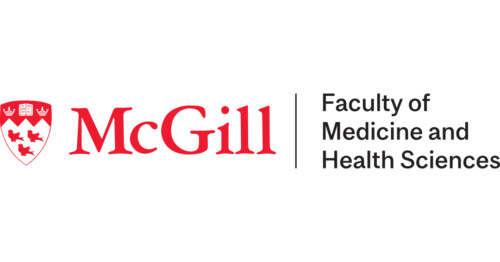 The Faculty of Medicine stopped being simply a medical school a long time ago. In 2020 it got a new name to reflect that: the Faculty of Medicine and Health Sciences.
The Faculty of Medicine stopped being simply a medical school a long time ago. In 2020 it got a new name to reflect that: the Faculty of Medicine and Health Sciences.
“The truth is, when I started as Dean, people were already talking about changing the name of the Faculty,” recalls V-P (Health Affairs) and Dean of Medicine and Health Sciences Dr. David Eidelman. “I was reluctant to do it at that time, because I felt there were a lot of fundamental issues that had to be addressed in the Faculty before we got on to things like the name.”
A massive consultation effort was launched and eventually became the strategic plan known as Project Renaissance. “We went through a number of iterations of planning and implementing different changes. And eventually, we decided that it was important that the structure of the Faculty better reflect who we really are,” explains Dr. Eidelman. “One aspect of that was looking at what elements of our research programs needed additional support to continue leading in their fields.”
Out of these reflections, a series of initiatives were established to address clinical and research areas that were due for an expanded role. “One of these was population and global health,” says Dr. Eidelman. “I asked Gilles Paradis, who was at that time the Chair of Epidemiology, Biostatistics and Occupational Health, to put together a task force to look into it. They came back and said we don’t just need an initiative, we need a School. And that led to the establishment of the School of Population & Global Health in 2016.”
Naturally, this raised the question: “What about the rest of the place?” says Dr. Eidelman. “It became clear the research-focused departments also had unique needs that were perhaps not being best served under the existing organizational structure. And it seemed to us there should be a School or at least an entity that regrouped those departments and that became the School of Biomedical Sciences, created in April 2020.”
The logical next step was the creation of the School of Medicine to encompass the Faculty’s prestigious undergraduate and postgraduate medical education programs, as well as its Continuing Professional Development activities. This sixth School was also approved in April 2020.
New structure, new name
With the two new Schools coming on board, the time was right to revisit the Faculty’s name.
It wasn’t hard to find excellent arguments. Dr. Eidelman points out that Nursing has been part of the Faculty since 1920, Physical & Occupational Therapy since 1943 and Communication Sciences and Disorders since 1963. “For years these were tacked on, and basically it was a medical school with a few Schools and Departments,” says Dr. Eidelman. “Now the name embraces their significant contributions over all these years.”
Another compelling reason for the reorganization is the changing face of health care research and delivery. The large datasets that increasingly drive research, as well as the evolving roles of health professionals in clinical settings, mean that increased interdisciplinarity and interprofessionalism are both essential, notes Dr. Eidelman.
“If it had just been a name change, and we hadn’t changed any of the structures, that’s just a brand shift,” he adds. “Here, the brand shift reflects a higher level of organization than we had before and a more sophisticated way of looking at our operations.”
Although there was some concern expressed about the name change because of the historic importance of Medicine as McGill’s first Faculty, the idea met with less resistance than the Dean expected when the community was polled. “The majority of respondents – 81% – thought it should be Faculty of Medicine and Health Sciences.”
How did Dr. Eidelman vote? “Faculty of Medicine and Health Sciences was my personal preference,” he says. “It was a real statement about who we are. It wasn’t pretending we weren’t what we had been for the last 200 years. I thought that trying to find a balance between our past and our future was important, so that our alumni and the public-at-large would still recognize us.”
